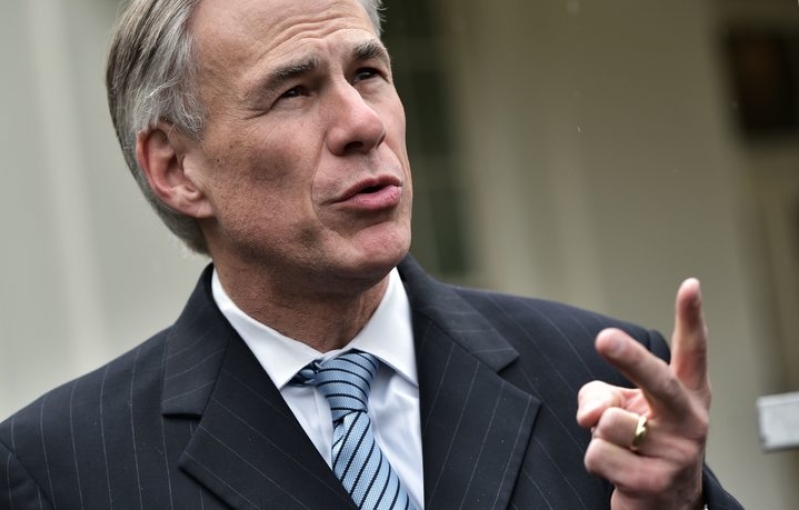
Texas Gov. Greg Abbott has stirred up controversy after he signed a law that effectively bans sanctuary cities across the country's second most populous state.
"Texans expect us to keep them safe, and that is exactly what we are going to do by me signing this law," Abbott said before signing the law on Facebook Live Sunday night. "Elected officials and law enforcement agencies, they don't get to pick and choose which laws they will obey," he added.
The law, which goes into effect on Sept. 1, forces officers to cooperate with Immigration and Customs Enforcement agents "and requires sheriffs to honor agency detainers, or requests to hold someone to determine whether deportation proceedings should begin," according to NBC.
It also creates a criminal charge for police chiefs, county sheriffs and constables who violate the ban, and will charge local jurisdictions up to $25,000 for each day they violate the law. Under the new law, police officers are permitted ask about a person's immigration status during any legal detention, which includes traffic stops.
"Texas has now banned sanctuary cities in the Lone Star State. ... The reason why so many people come to America is because we are a nation of laws, and Texas is doing its part to keep it that way," said Abbott.
He added, "Elected officials and law enforcement agencies, they don't get to pick and choose which laws they will obey."
According to reports, Texas, which has an estimated 1.5 million illegal immigrants and the longest border with Mexico of any U.S. state, has long been at the forefront of the immigration debate.
Explaining why he chose to enact the law, Abbott cited the death of Kate Steinle, shot in June 2015 by an illegal immigrant who had been deported from the US five times, but kept getting released by the authorities in San Francisco, California, because it was a "sanctuary city."
"He should never have been in this country. If he hadn't, Kate would still be alive today," he said. "It's inexcusable to release individuals from jail that have been charged with heinous crimes like sexual assault against minors, domestic violence and robbery. There are deadly consequences to not enforcing the law, and Texas has now become a state where those practices are not tolerated."
The passage is being hailed as a big win for Republicans, who have long advocated for stricter immigration laws. One of the sponsors of the bill, Republican state Representative Charlie Geren, clarified that the bill would have no effect on immigrants in the country illegally if they had not committed a crime. He also added there were no sanctuary cities in Texas at present and the measure would prevent any from emerging.
However, every major police chief in Texas opposed the bill, warning it will "widen a gap between police and immigrant communities, creating a class of silent victims and eliminating the potential for assistance from immigrants in solving or preventing crimes", notes NBC.
Thomas Saenz, president of the Mexican American Legal Defense and Education Fund, said millions will now be subjected to racial profiling and suggested that argued that Hispanic residents will now be less willing to cooperate with police investigations.
"Given the size of the state, this may well be the most costly gubernatorial signature in all of United States history," Saenz said.
On Friday, the Texas Conference of Catholic Bishops issued a statement calling for Abbott to veto the bill: "[The] bill does not help peace officers build trust with the migrant community," the group said. "Our clergy, religious brothers and sisters, and laity have a long history of involvement in serving migrants. Our ministry compels us to speak out on the issue of immigration reform, which is a moral issue that impacts human rights. We continue to advocate for more just and comprehensive immigration laws, which include reunification of families and creating more just pathways to citizenship."
In a statement Sunday, Terri Burke, executive director of the ACLU of Texas, called the law an "assault on humanity" and vowed to fight it "in the courts, at the ballot box and in the streets if we have to."
"It will not stand," Burke said.







